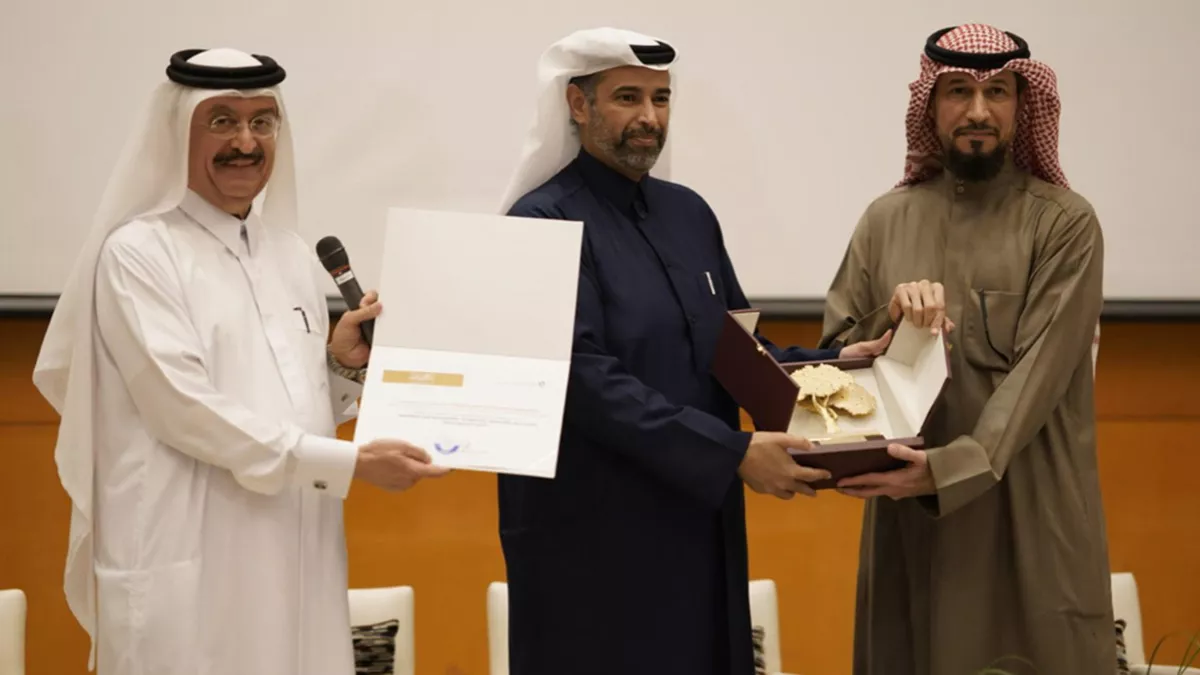
The Ministry of Environment and Climate Change (MoECC) has intensified efforts to bring about solutions for treatment and management of rejected brine and salts from desalination plants, to protect the marine life. A group of experts in a seminar, which was attended by Minister of Environment and Climate Change H E Sheikh Dr. Faleh bin Nasser bin Ahmed bin Ali Al Thani, discussed a research work on how to treat the wastewater of desalination plants operating in the Arabian Gulf region which causes great damage to the marine environment.
They also suggested how to utilise the wastewater, which has potential to produce hydrogen as a clean source of energy as well as the extraction of two types of salts – for edible and industrial purpose. The seminar entitled ‘Treatment and Management of Rejected – Brine and Salts from Desalination Plants’ was organised by MoECC.
Minister of Environment and Climate Change H E Sheikh Dr. Faleh bin Nasser bin Ahmed bin Ali Al Thani stressed on the importance of such projects and scientific research for all GCC countries. He said that rejected brine and salts from desalination plants posed a major challenge to the GCC countries because it causes a rise in water temperature and an increase in concentrated salts inside deep sea affecting marine life.
The Minister said that it also has harmful impact on the environment in general as a result of high salinity, in addition to the desalination plants themselves being affected over time so that their performance becomes less than required. He said that the Ministry of Environment and Climate Change is working to find solutions to all these challenges in cooperation with water desalination plants and Qatar Electricity and Water Company.
“Work is being done to utilise the wastewater that comes out of desalination operations, and to recycle it to extract the salts it contains because of its economical purpose that many industrial companies are interested in,” said the Minister.
He noted that the ministry is seeking to expand such research and experiments that have proven successful so far, but on a small scale, as well as working to expand this field in a wider commercial way.
“This research is still in its early stages and work will be done to benefit from it, especially since these researches produce important industrial and edible salts, in addition to hydrogen extraction, which is considered the future of energy and enters many industries as it has no carbon footprint,” said the Minister.
He explained that the phenomenon of fish death appears sometimes, is not caused only by the high temperature, as this phenomenon is due to many reasons such as stagnant water, high water salinity and different currents, which leads to a lack of oxygen in the water.
“These are natural phenomena, although we take up the issue at the symposium which is focusing on reducing the salinity of sea water, and thus reducing fish death,” said the Ministry.
The Minister of Environment and Climate Change honoured a number of prominent personalities for their proactive roles in protecting the environment. Dr. Eng Mohammed bin Saif Al Kuwari, environmental expert at MoECC said the desalination of sea water is a major source of fresh water in many parts of the world, and the countries bordering the Gulf also depend heavily on desalination of sea water for their fresh water supply, and it contributes to 33% of the global desalination capacity.
He said that disposing of brine from desalination plants into seawater is a critical environmental issue, because it contains high salinity, high temperature, and residual chemicals from pre-treatment processes, which might cause damage to marine and subterranean habitats.
Al Kuwari said that the Ministry will form a scientific and technical committee to develop a comprehensive and applicable plan for the treatment and management of rejected wastewater and salts generated from desalination plants.
Professor Badr Shafaqa Al Enezi, a visiting scientist and researcher at the Department of Mechanical Engineering, MIT University, USA, said that the research work found solutions for brine of desalination plants, which affects the marine environment after decades and utilise them in producing two types of slats and hydrogen.
Member of the Board of Directors and General Director of Qatar Electricity and Water Company (QEWC) Eng Mohammad Nasser Al Hajri and Founding Chairman of Gulf Organisation for Research & Development (GORD), Dr. Yousef Alhorr also attended the event.
